Ammonia gas from the birds’ feces sets off a reaction that potentially blunts some local effects of climate change
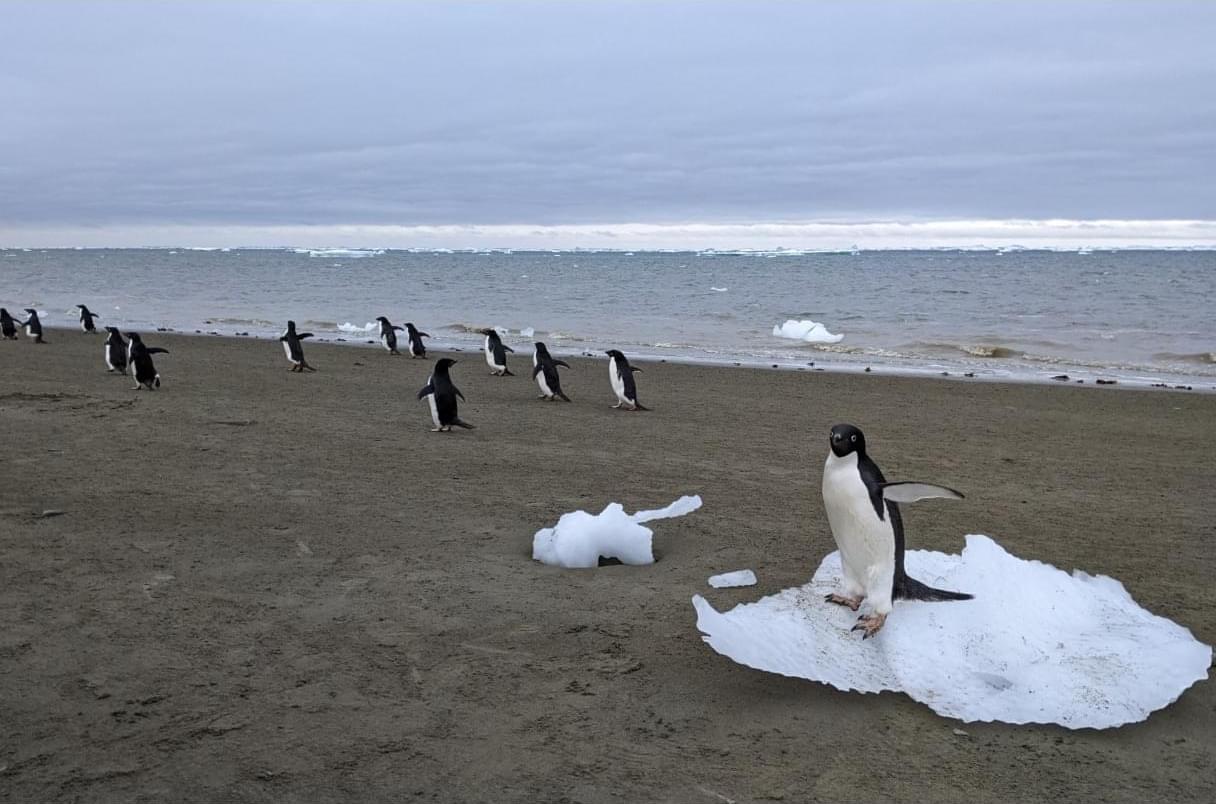

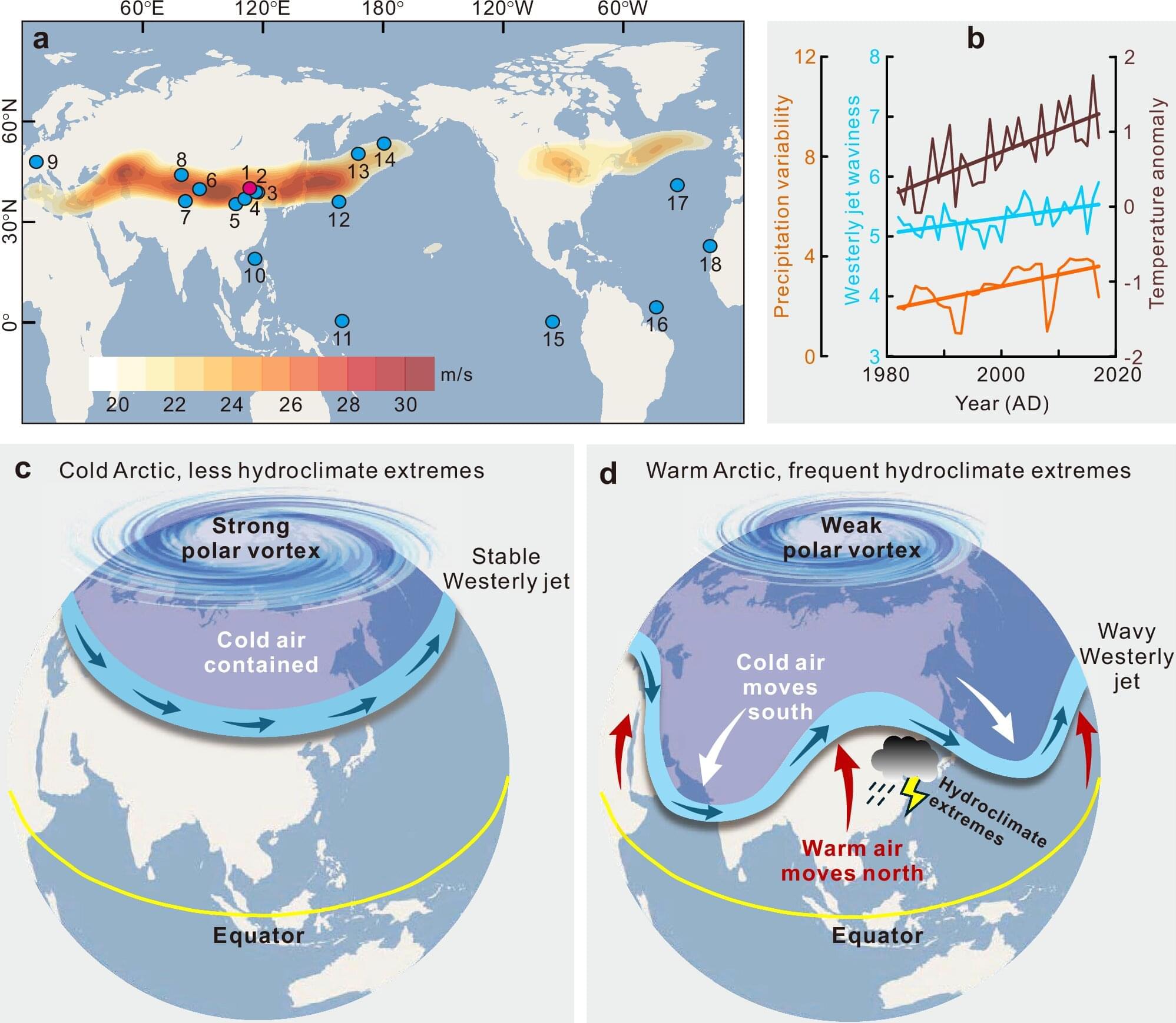
In recent years, the global climate has become increasingly extreme, with intensifying alternations of droughts and floods—particularly in ecologically vulnerable mid-latitude regions. But what is driving this hydroclimatic variability? Scientists have long debated the underlying mechanisms.
A research team led by Prof. Long Hao from the Nanjing Institute of Geography and Limnology of the Chinese Academy of Sciences, drilled a 300.8-meter-long lacustrine sediment core in the Datong Basin of Shanxi Province, located in mid-latitude East Asia (Northern China). By reconstructing more than 5.7 million years of Earth’s history, the researchers revealed that the “waviness” of the westerly jet stream is the primary driver of mid-latitude climate variability. The study was recently published in Nature Communications.
This sediment core acts as a detailed “climate archive,” documenting precipitation changes over approximately 5.7 million years—spanning the Pliocene and Pleistocene epochs. By analyzing chemical indicators within the core, the researchers obtained a high-resolution record of ancient precipitation patterns.
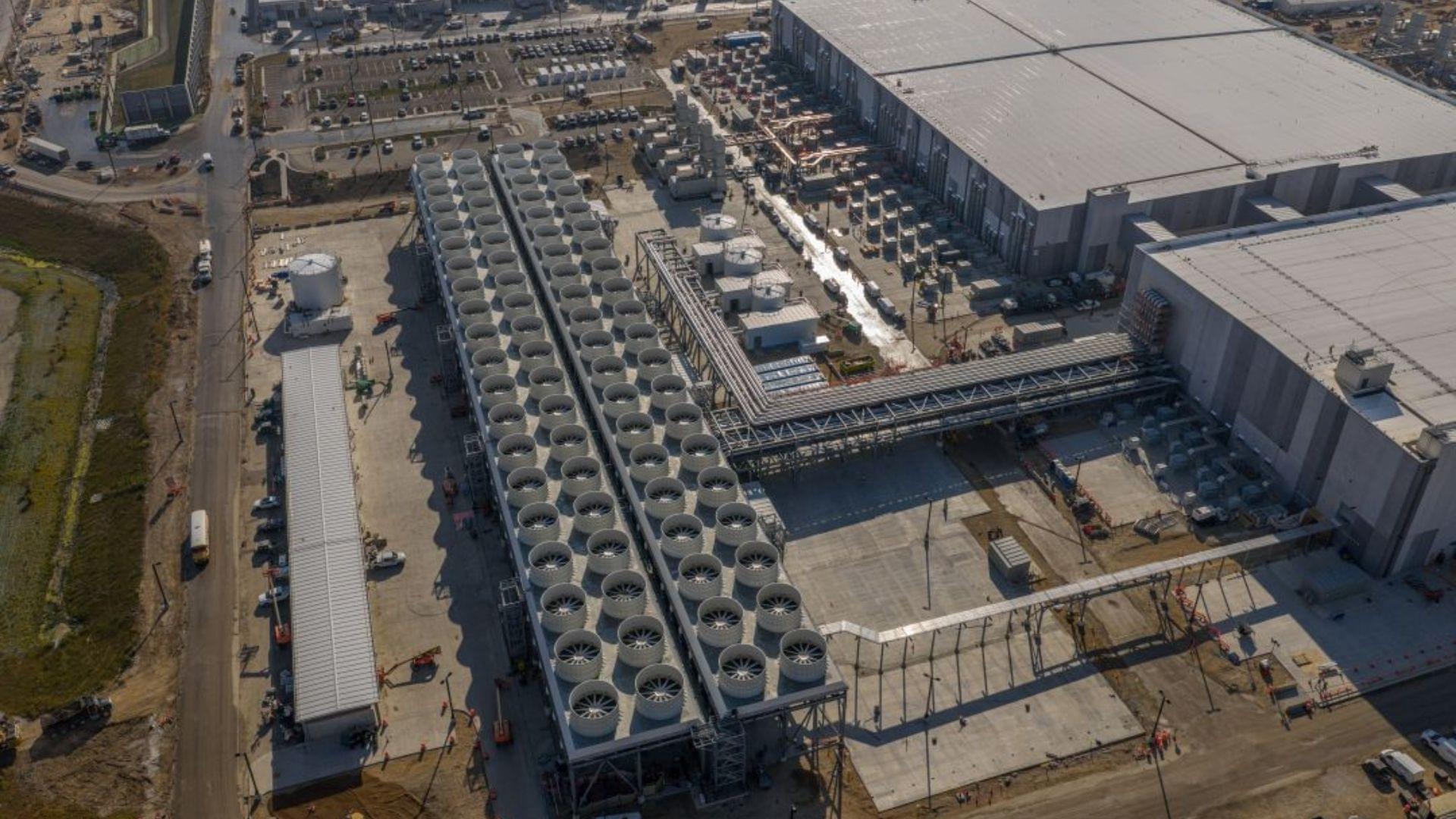

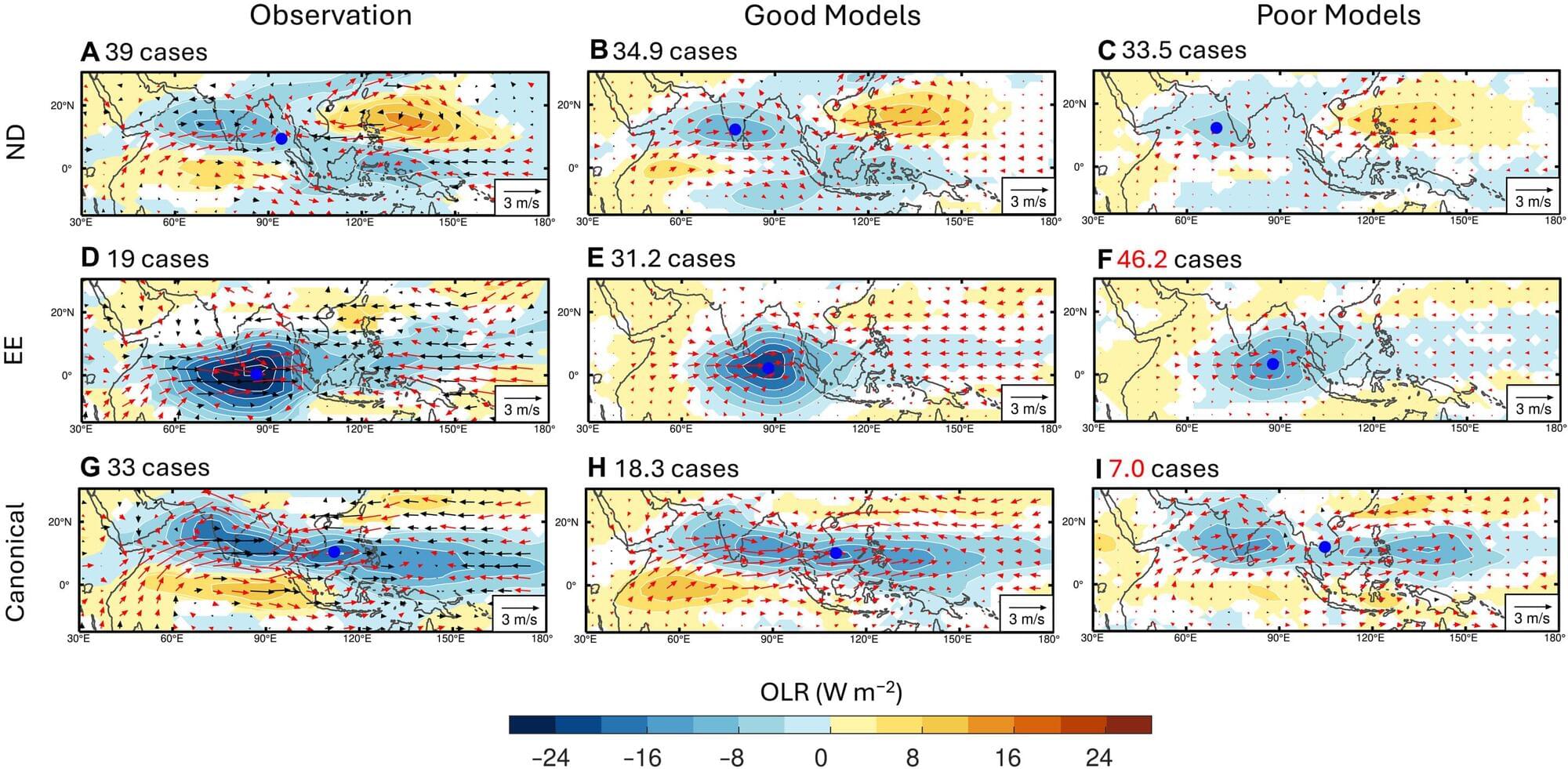
A climate study led by The Hong Kong University of Science and Technology (HKUST), in collaboration with an international research team, reveals that under a high-emission scenario, the Northern Hemisphere summer monsoons region will undergo extreme weather events starting in 2064. Asia and broader tropical regions will face frequent “subseasonal whiplash” events, characterized by extreme downpours and dry spells alternating every 30 to 90 days which trigger climate disruptions with catastrophic impacts on food production, water management, and clean energy systems.
Published in Science Advances under the title “Increased Global Subseasonal Whiplash by Future BSISO Behavior,” the research was co-led by Prof. Lu Mengqian, Director of the Otto Poon Center for Climate Resilience and Sustainability and Associate Professor of the Department of Civil and Environmental at HKUST and Dr. Cheng Tat-Fan, a postdoctoral fellow in the Department of Civil and Environmental Engineering at HKUST, alongside collaborators from the University of Hawaiʻi at Mānoa, Sun Yat-Sen University and Nanjing University of Information Science and Technology.

About 50,000 years ago, humanity lost one of its last surviving hominin cousins, Homo floresiensis (also known as “the hobbit” thanks to its small stature). The cause of its disappearance, after more than a million years living on the isolated volcanic island of Flores, Indonesia, has been a longstanding mystery.
Now, new evidence suggests a period of extreme drought starting about 61,000 years ago may have contributed to the hobbits’ disappearance.
Our new study, published today in Communications Earth & Environment, reveals a story of ecological boom and bust. We’ve compiled the most detailed climate record to date for the site where these ancient hominins once lived.

The building sector accounts for nearly 40% of global energy consumption and over one-third of energy-related carbon emissions. Therefore, it is vital to adopt low-carbon design strategies. Double-Skin Façades (DSFs) offer significant potential to improve energy efficiency through the dynamic control of heat and daylight. This study evaluates the combined effects of building orientation, fixed shading devices, and adjustable blinds on the performance of DSFs across six cities representing diverse climate types: Phoenix, Stockholm, Kuala Lumpur, London, Cape Town, and Tokyo. Using a model developed in DesignBuilder, 852 scenarios were simulated with 5-min time steps over a full year. The results show that optimal orientation depends on the climate and that cooling load may be reduced up to 59%, with CO2 emission savings up to 11.7% compared to a base south-facing configuration.


When a gas is highly energized, its electrons get torn from the parent atoms, resulting in a plasma—the oft-forgotten fourth state of matter (along with solid, liquid, and gas). When we think of plasmas, we normally think of extremely hot phenomena such as the sun, lightning, or maybe arc welding, but there are situations in which icy cold particles are associated with plasmas. Images of distant molecular clouds from the James Webb Space Telescope feature such hot–cold interactions, with frozen dust illuminated by pockets of shocked gas and newborn stars.
Now a team of Caltech researchers has managed to recreate such an icy plasma system in the lab. They created a plasma in which electrons and positively charged ions exist between ultracold electrodes within a mostly neutral gas environment, injected water vapor, and then watched as tiny ice grains spontaneously formed.
They studied the behavior of the grains using a camera with a long-distance microscope lens. The team was surprised to find that extremely “fluffy” grains developed under these conditions and grew into fractal shapes—branching, irregular structures that are self-similar at various scales. And that structure leads to some unexpected physics.
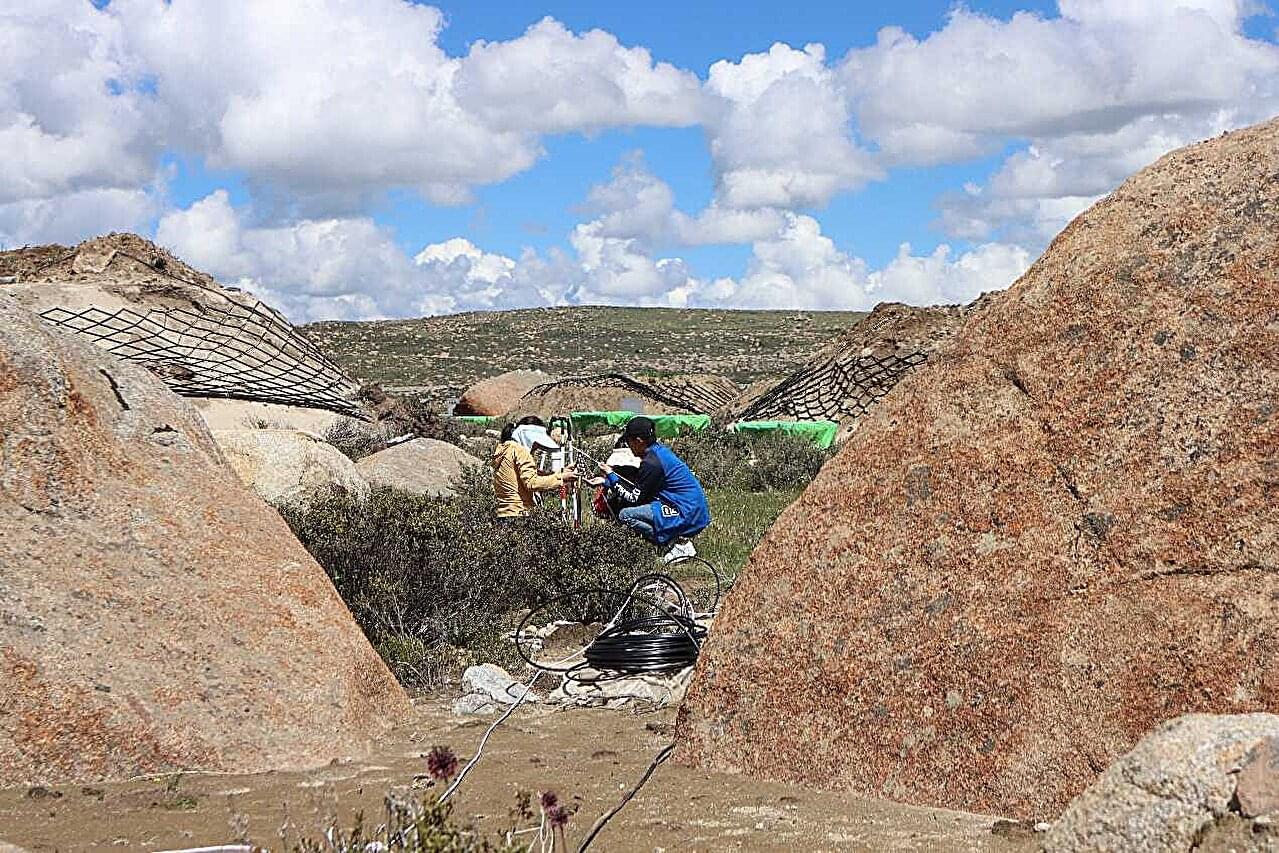
A new study led by researchers from the Institute of Atmospheric Physics of the Chinese Academy of Sciences (CAS) has uncovered the first observational evidence of lateral negative re-discharges occurring on negative leader channels. Published recently in Geophysical Research Letters, the findings offer new insights into how lightning channels remain electrically active and how their structures evolve before and after a return stroke.
Prior to this research, negative-polarity lateral breakdowns had only been observed near the tips of positive leaders—never documented along negative leader channels.